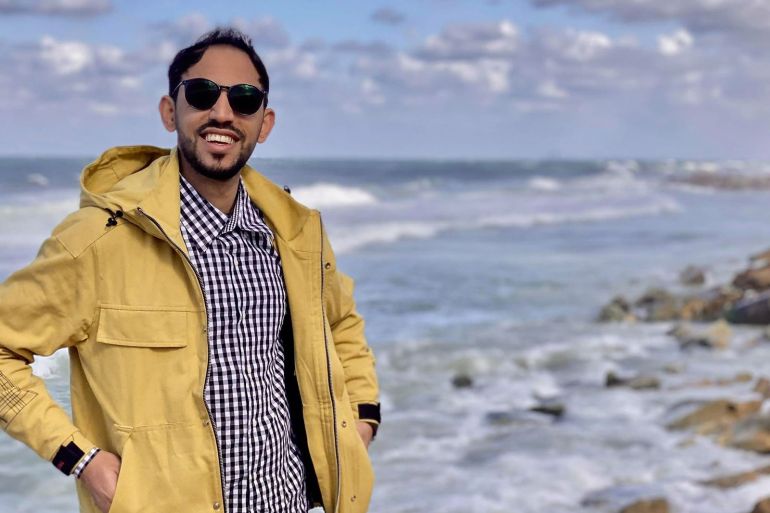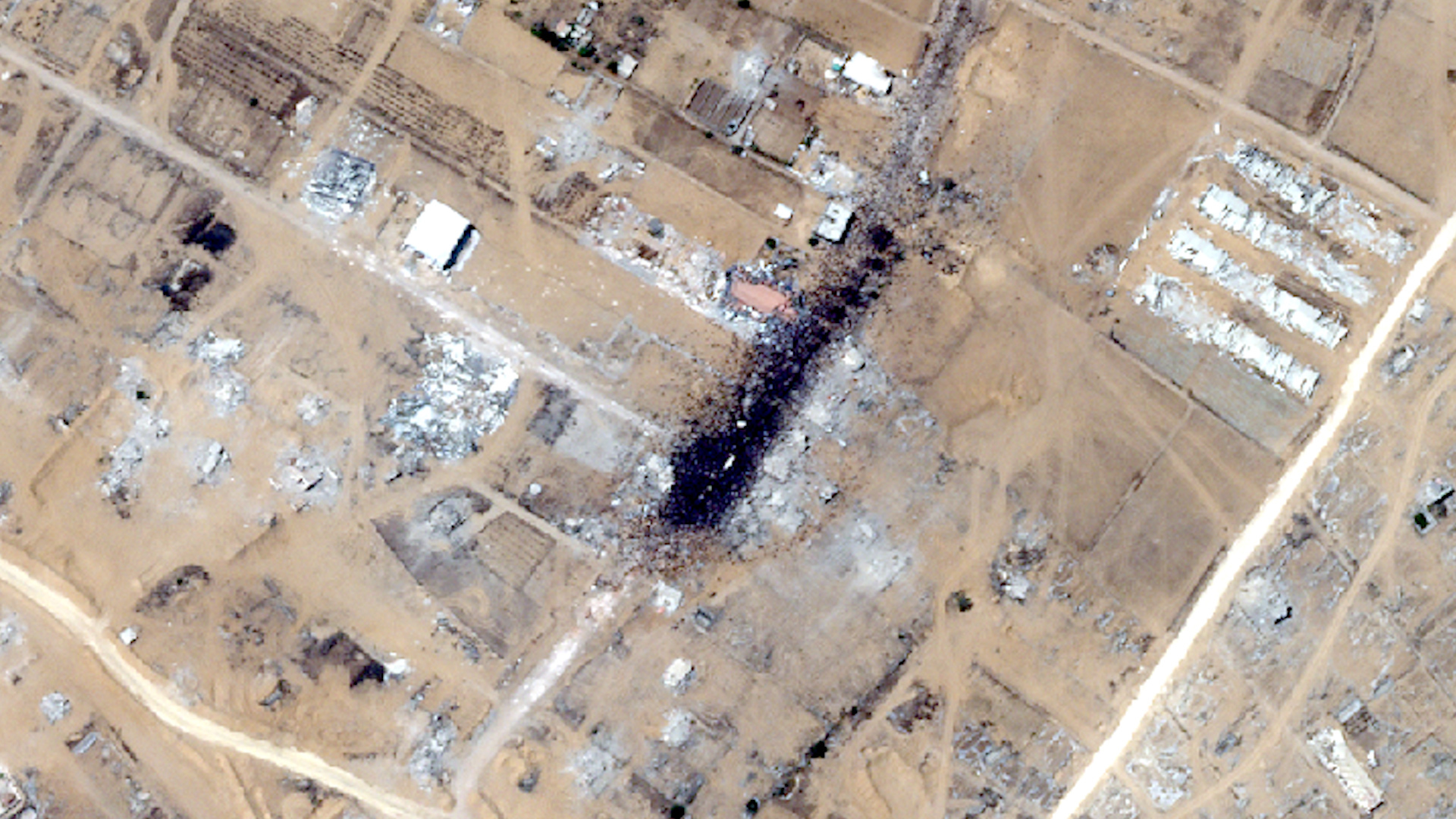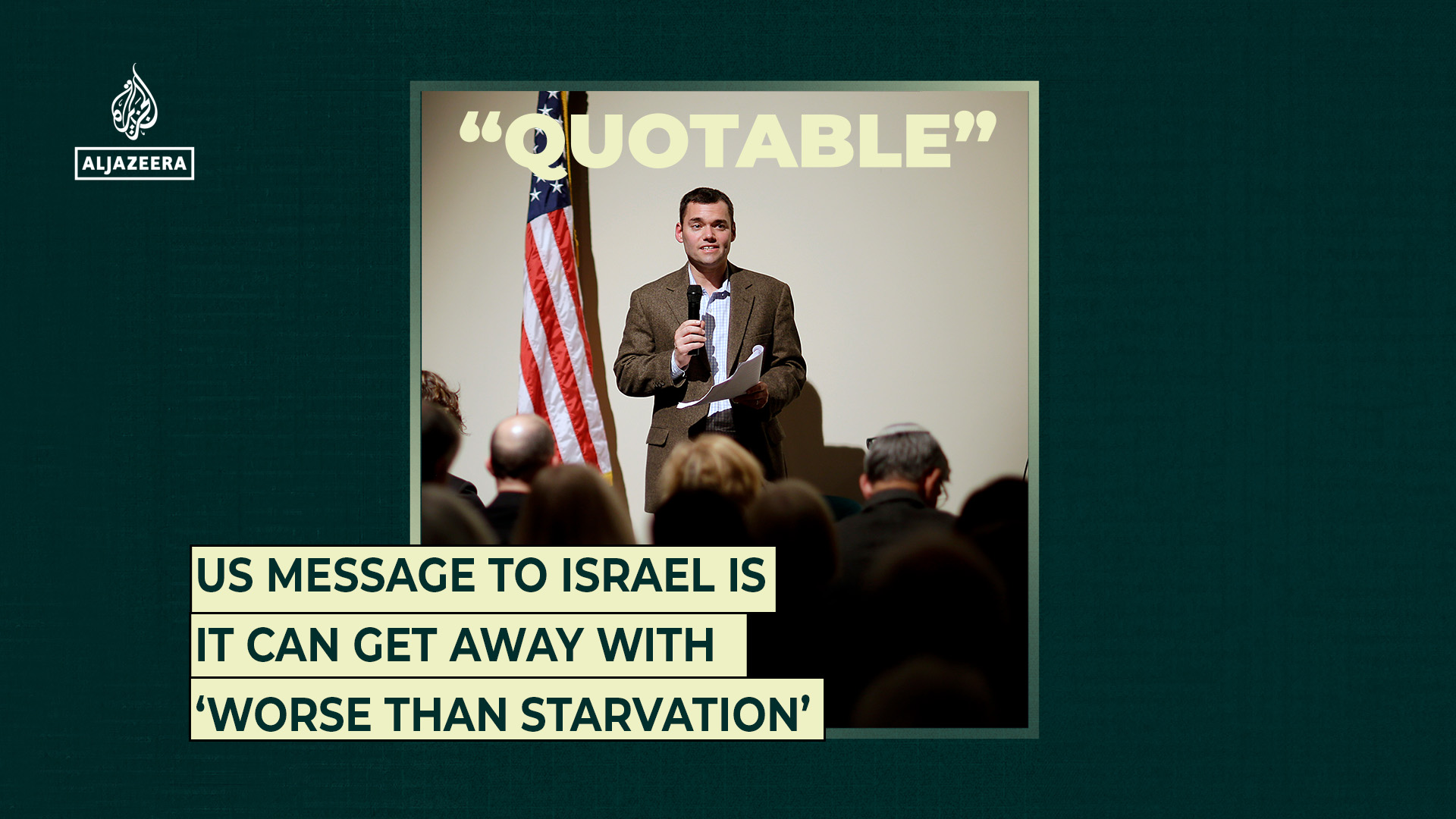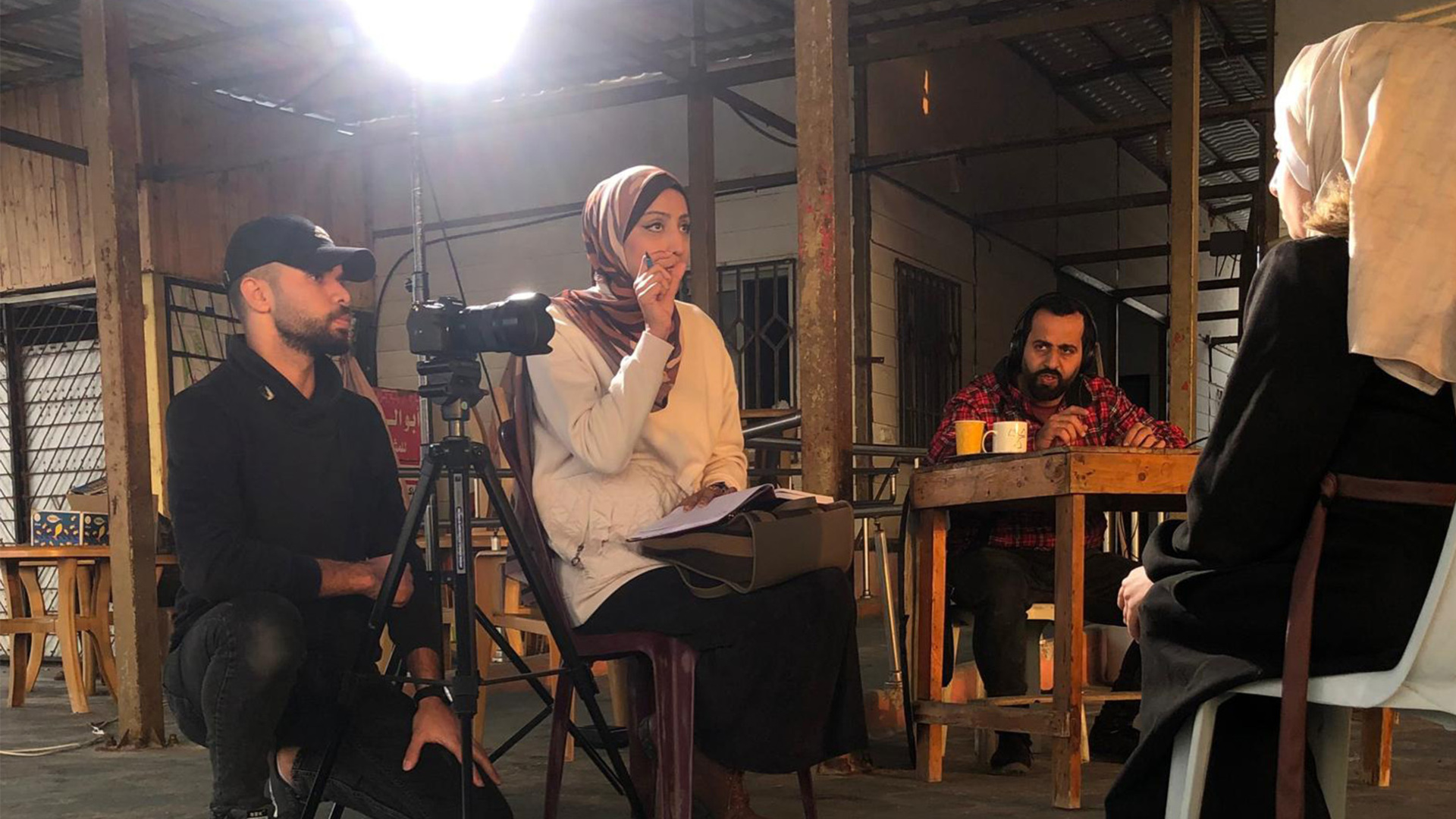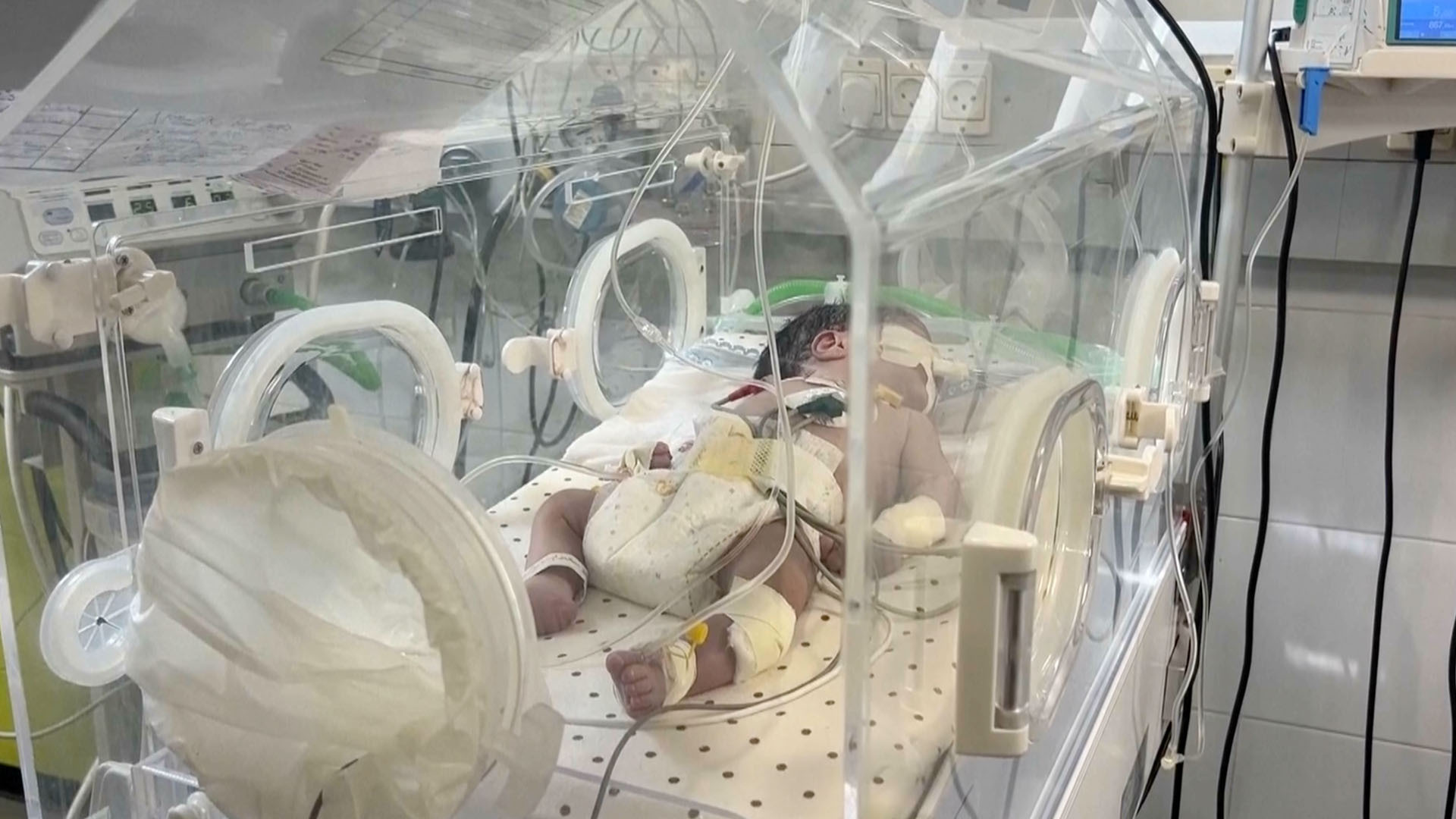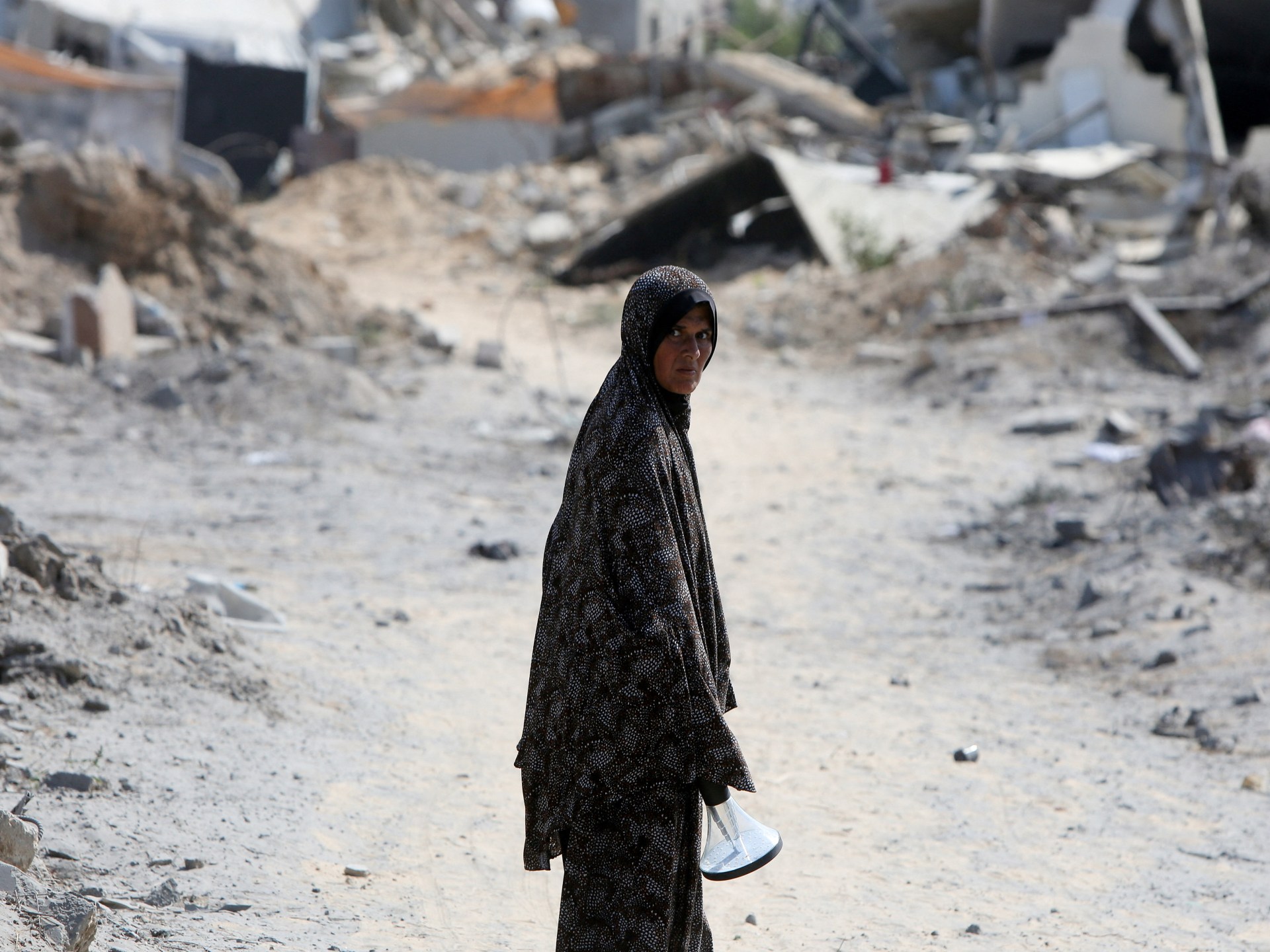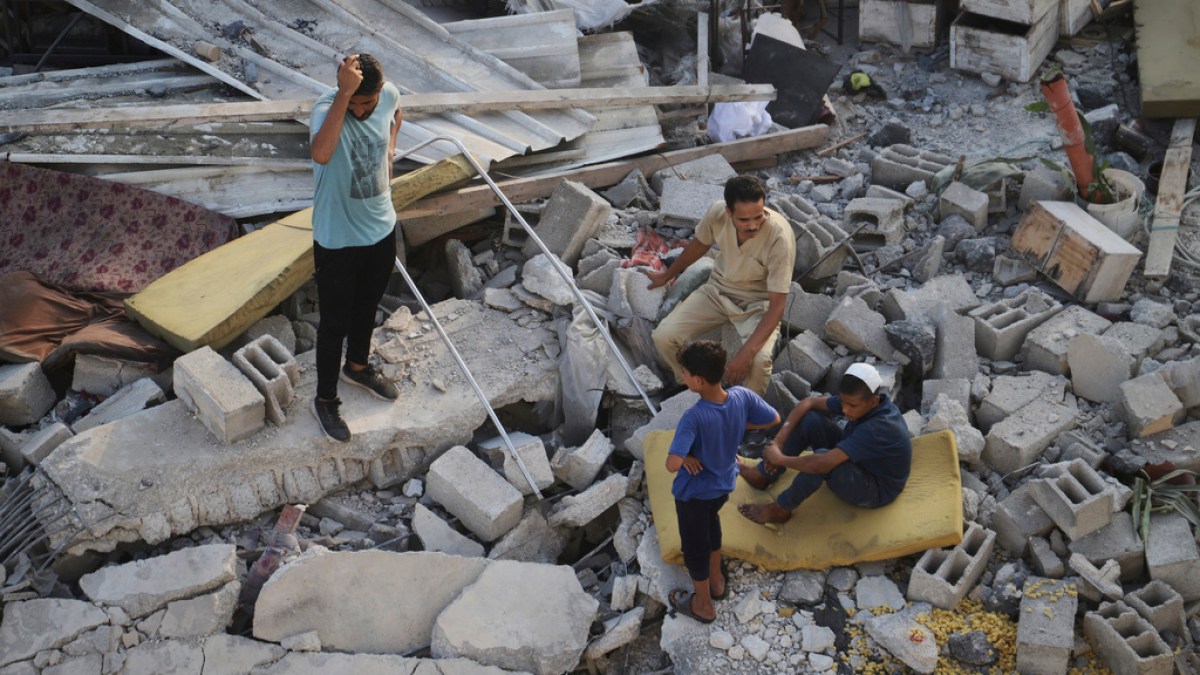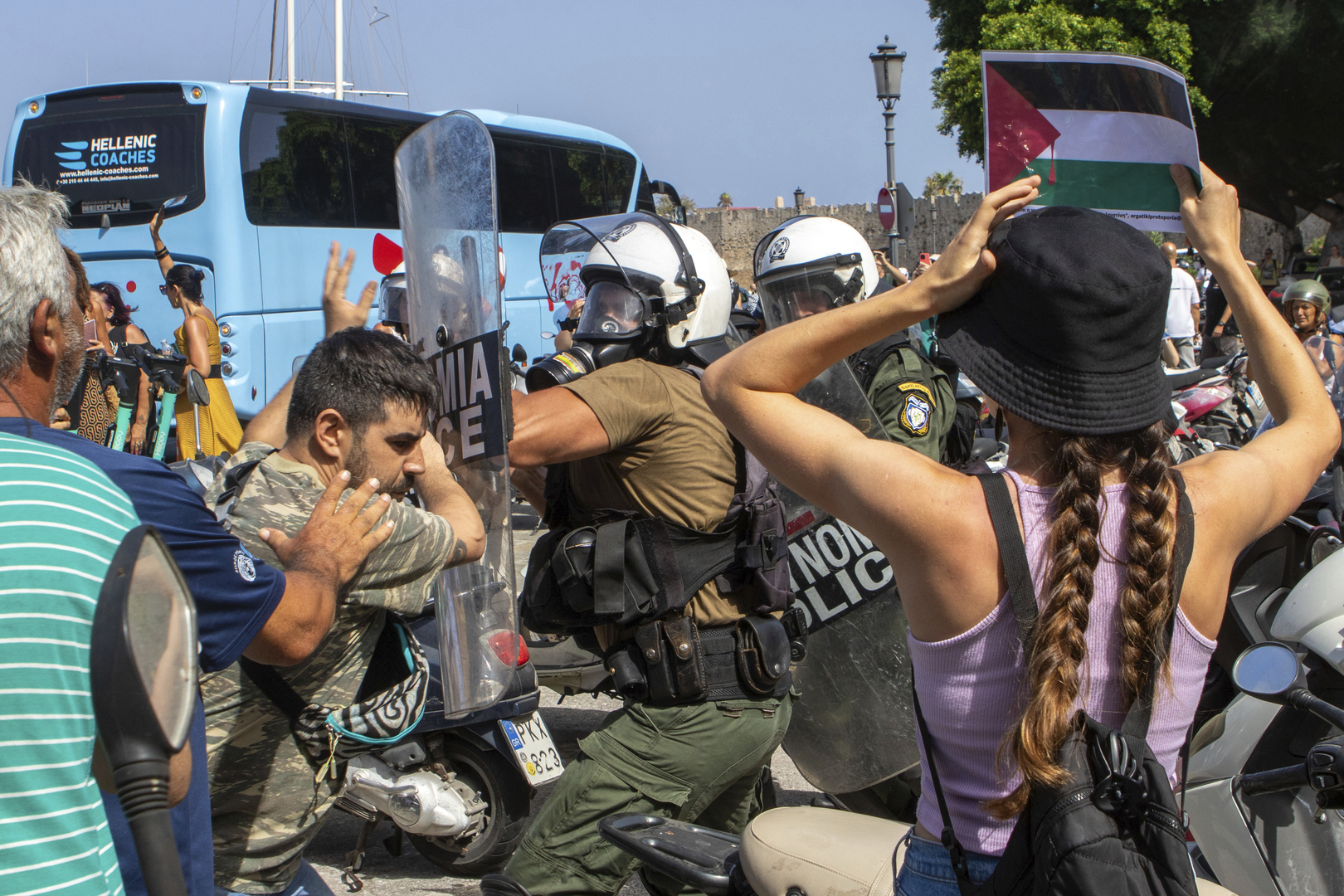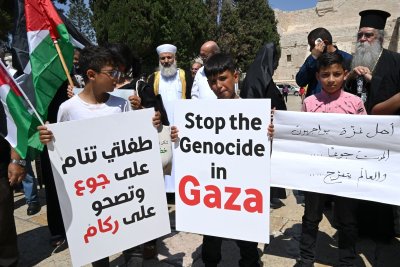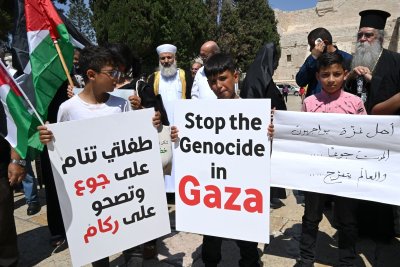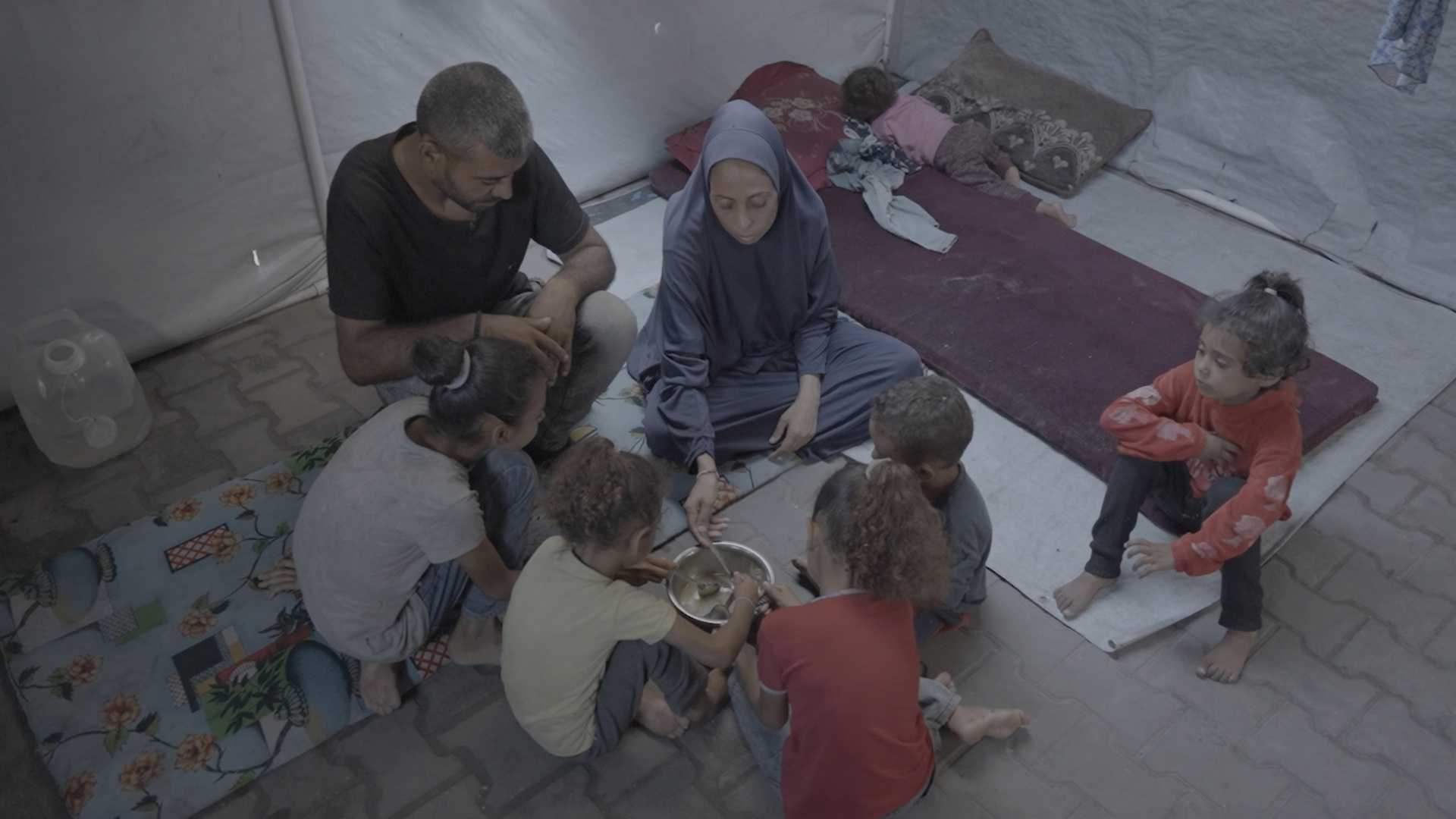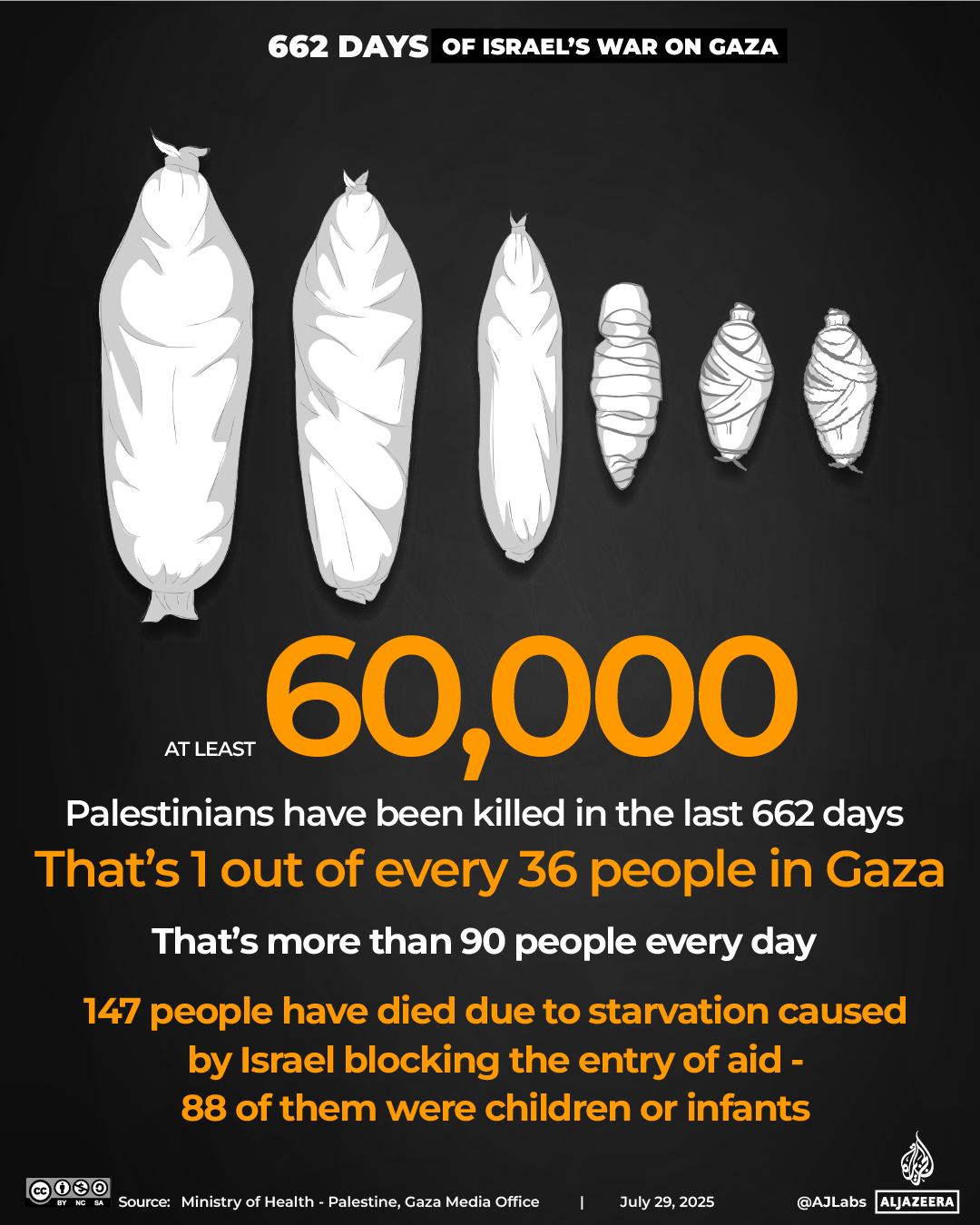Palestinian newborns starving in Gaza as infant formula runs out | Israel-Palestine conflict News
Palestinian mothers in the Gaza Strip are desperately trying to feed their newborns as Israel’s punishing blockade on the besieged enclave has led to dire shortages of infant formula, with some resorting to filling bottles with water and whatever food they can find.
Dr Kahlil Daqran told Al Jazeera on Thursday that as supplies of formula run out, many mothers are often too malnourished to breastfeed their infants.
“In the Gaza Strip, we have thousands of children being starved because there is no milk for children under the age of two,” Daqran said.
“These children, their mothers also have malnutrition because there is no food, so the mothers cannot produce milk. Now, our children are being fed either water or ground hard legumes, and this is harmful for children in Gaza.”
Azhar Imad, 31, said she has mixed tahini with water in hopes of feeding four-month-old Joury. But she said she fears the mixture will make her baby sick.
“I am using this paste instead of milk, but she won’t drink it. All these can cause illnesses,” Imad said. “Sometimes, I give her water in the bottle; there’s nothing available. I make her caraway and herbs, any kind of herbs.”
Israel’s blockade on Gaza, which has been under Israeli military bombardment since October 2023, has led to critical shortages of food, water, medicine and other humanitarian supplies.
Local hospitals said on Thursday that at least two more deaths from Israel’s forced starvation were reported in the last 24 hours, bringing the total number of hunger-related fatalities since Israel’s war began to 159, including 90 children.
The United Nations has warned that Palestinian children are especially vulnerable as hunger grips the coastal territory, and UN officials have repeatedly called on Israel to allow an uninterrupted flow of aid supplies.
Israel has blamed the UN for the starvation crisis unfolding in the Gaza Strip, saying the global body had failed to pick up supplies.
UN officials, and several nations, have rejected that claim as false and stressed that Israel has refused to offer safe routes for humanitarian agencies to transport aid into Gaza.
Airdrops of humanitarian supplies, carried out in recent days, have also done little to address the widespread hunger crisis. Experts denounced the effort as dangerous, costly and ineffective.
Farhan Haq, deputy spokesperson for UN Secretary General Antonio Guterres, told reporters on Thursday that the UN and its partners “continue to seize every opportunity to collect supplies from the Israeli-controlled crossings and replenish those platforms with new supplies”.
“Our colleagues say that, despite Israeli announcements regarding the designation of convoy routes as secure, trucks continue to face long delays that expose drivers, aid workers, and crowds to danger,” Haq said.
“The long waits are because a single route has been made available for our teams exiting Kerem Shalom [Karem Abu Salem crossing] inside Gaza, and Israeli ground forces have set up an ad hoc checkpoint on that route.”
As starvation continues to grip Gaza, more Palestinians have been killed by the Israeli military while seeking aid at distribution sites operated by the controversial Israeli- and United States-backed GHF.
A source at al-Aqsa Martyrs Hospital told Al Jazeera that at least 23 people were killed after Israeli forces opened fire at them on Thursday morning as they waited for aid near Netzarim junction in central Gaza.
The deadly incident came just hours before the White House announced that US President Donald Trump’s special envoy to the Middle East, Steve Witkoff, and US Ambassador to Israel Mike Huckabee are expected to enter Gaza on Friday to inspect the aid distribution sites.
White House Press Secretary Karoline Leavitt told reporters that the US officials also would meet with Palestinians to “hear firsthand about this dire situation on the ground”.
Reporting from the Jordan capital, Amman, Al Jazeera’s Nour Odeh explained that the trip comes amid growing concern in Washington that US contractors may be found liable for the deaths of more than 1,000 Palestinians killed while trying to reach GHF sites since May.
“There is a lot of pressure and insistence in Israel that those sites must continue to operate even if Israel allows more aid into Gaza,” Odeh said.
“This organisation was set up to bypass the United Nations, and Israel is not ready to let it go despite the resistance from the international community to engage with it in any way because it is accused of violating humanitarian principles.”
Hamas said in a statement released via its Telegram channel late on Thursday that it is ready to “immediately” engage in negotiations to end the war in Gaza “once aid reaches those who deserve it and the humanitarian crisis and famine in Gaza are ended”.
Meanwhile, in Gaza, countless families continue to face a desperate search for food.
Nehma Hamouda said she has struggled to keep her three-month-old granddaughter, Muntaha, alive amid the shortage of infant formula.
Muntaha’s mother was shot by Israeli soldiers when she was pregnant. She gave birth to her daughter prematurely but died weeks later.
“I resort to tea for the girl,” said Hamouda, explaining that her granddaughter cannot process solid foods yet.
“She’s not eating, and there’s no sugar. Where can I get her sugar? I give her a bit [of anise], and she drinks a bit,” she said. “At times, when we get lentil soup from the soup kitchen, I strain the water, and I try to feed her. What can I do?”
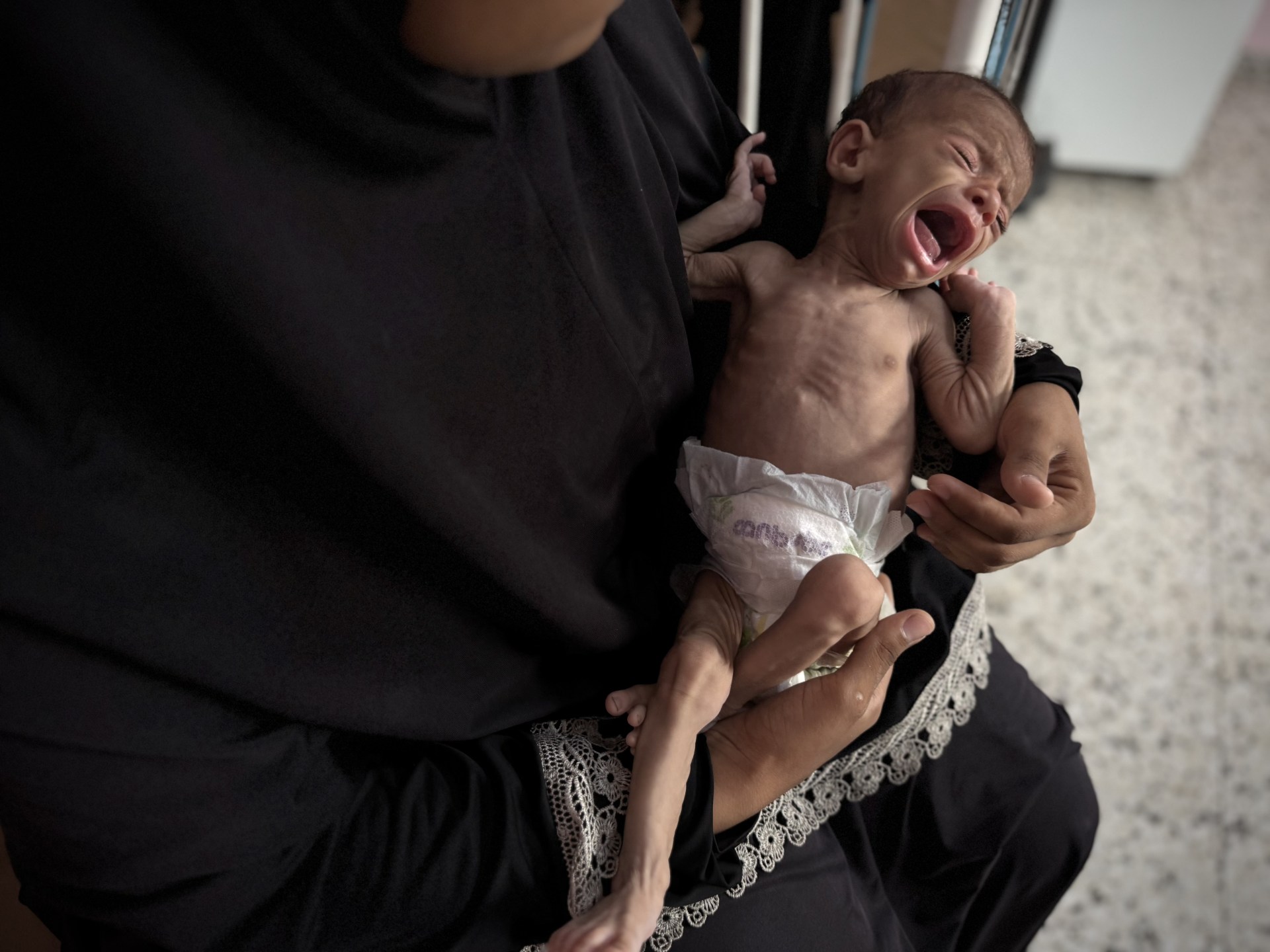



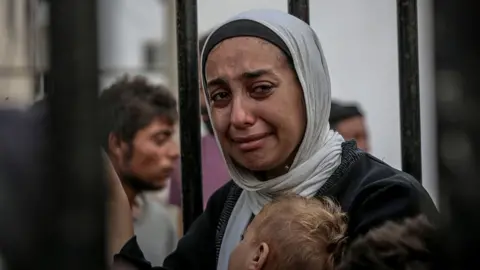
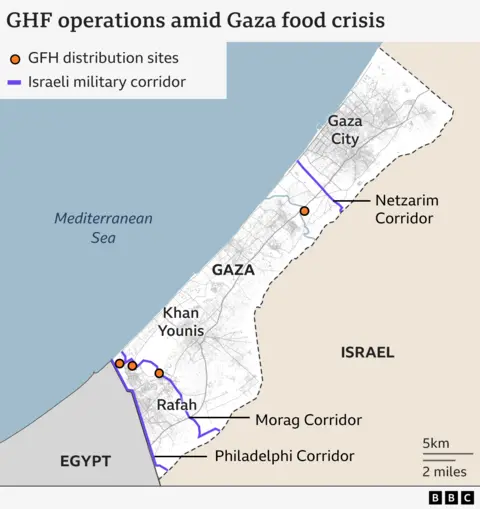
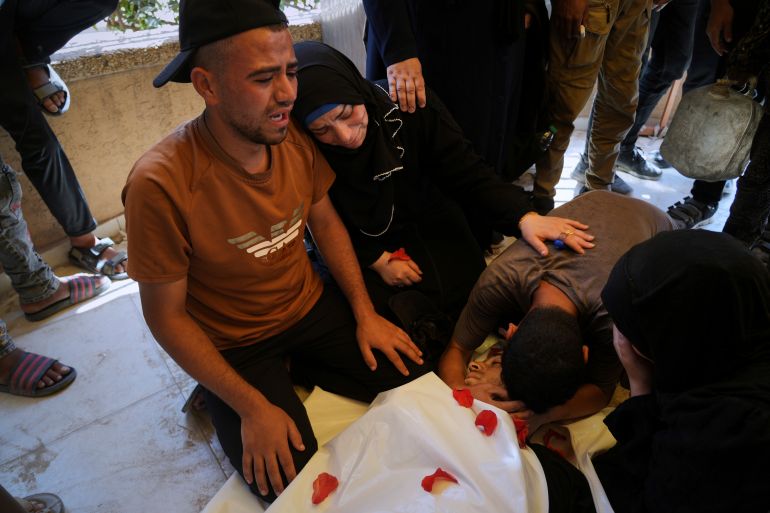
![Palestinians mourn over the body of Ahmed Abu Hilal, who was killed while on his way to an aid hub in Gaza, during his funeral at Nasser Hospital in Khan Younis, in the southern Gaza Strip, on Sunday, June 8, 2025. [Abdel Kareem Hana/AP]](https://www.occasionaldigest.com/wp-content/uploads/2025/06/AP25159513055391-1749393552.jpg)
